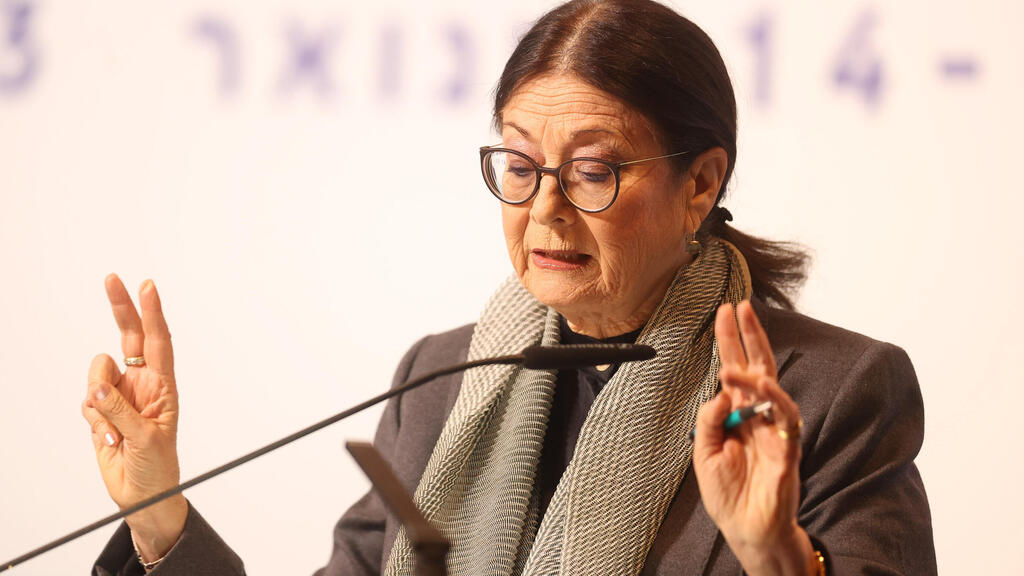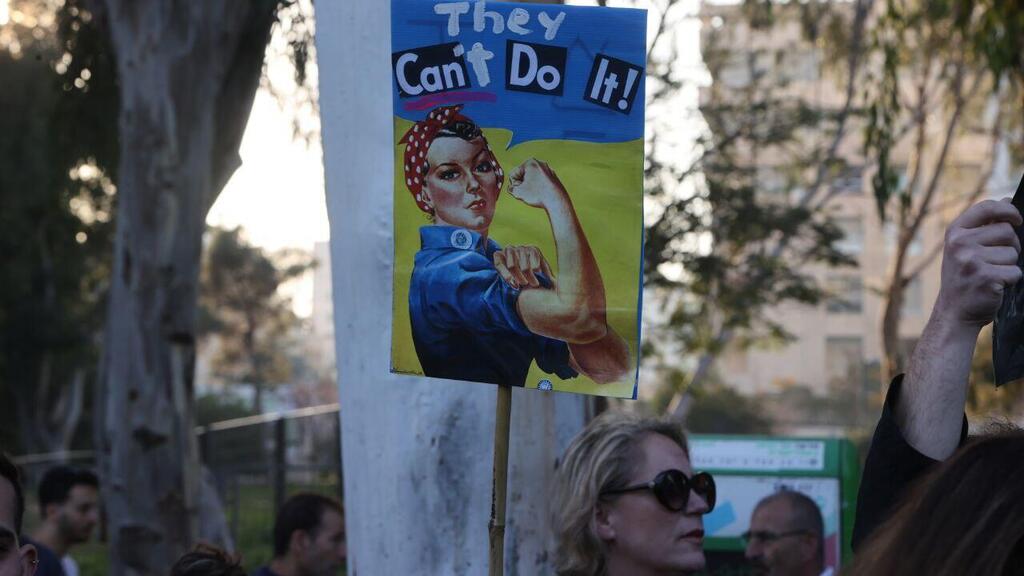Getting your Trinity Audio player ready...
Sandra Day O'Connor, the first woman to ever serve on the United States Supreme Court, once said: "The framers of the Constitution were so clear in the federalist papers and elsewhere that they felt an independent judiciary was critical to the success of the nation."
'Independent,' being the operative word. But what does it mean? In a political context, it means the prevailing winds of the public sphere shall not infringe or impose any constraints or even mild considerations when the court contemplates a ruling.
4 View gallery


Prime Minister Benjamin Netanyahu with Justice Minister Yariv Levin
(Photo: Alex Kolomoisky)
Politicians are free to say what they want, and so is the head of state, be it a president or prime minister. That's basically what they're paid to do. Convey ideas.
One of the reasons they like talking so much is because they have a constituency to answer to. They find themselves constantly running their mouths as a way to illustrate to the people that they're "hard at work." That they're doing what they were elected to do, at least in theory.
Taken at face value, Justice Minister Yariv Levin's proposed judicial reform, or more specifically, the so-called override law, sounds like a noble idea. Instead of letting the Supreme Court decide which legislations are worthy and which are not, they have to answer to the people's representatives. It provides some accountability where none previously existed.
But it also presents another problem. By definition, it means that when we believe the government has done something unworthy or just flat-out wrong, we have nowhere to turn to. There will be no point in turning to the courts because the courts will be overruled by the government anyway. The same government that put us in that situation in the first place.
The U.S. knew that in a representative democracy, the tyranny of the majority would always be a concern. Just because the people elect someone to head the state, does not mean every decision he or she makes is the right one.
Adolf Hitler was democratically elected too, after all.
So, they introduced the Supreme Court, whose verdicts are final and cannot be overturned by an overzealous legislative or executive branch, overly affected by the political winds of the moment.
Non-elected Supreme Courts exist in pretty much all developed countries. All over western Europe, Australia, the Orient, and Canada. This is not a new notion. It withstood the test of time with admirable results, in that it mostly succeeded in maintaining equilibrium between the temporary will of the majority and the permanent rights of the minority.
But, the real tragedy is that none of this matters. Explaining every detail of what was just said to the supporters of the override law will likely change nothing. Itamar Ben-Gvir's proponents don't really care about the Supreme Court or its level of influence. They never paid it much mind before, and they don't now.
This is about something much more basic: Commands and compliance.
Much has been said about how effective fear can be in politics. Nothing drives people to vote more than that. Israeli politicians are obviously aware of this, so they weaponize it.
Doug Casey, an American author mostly associated with the American Right, said: "Fear is being used by the political class as an excuse to accumulate more power and self-importance."
That's what we see being played out. Ben-Gvir and his cohorts wish to accumulate as much political influence as they can in the shortest amount of time possible. So, they follow a tried-and-tested two-step solution: First, you give the people something to fear. Second, you present yourself as the only viable alternative to that fear.
Step one: Make (effectively: issue a command) people fear the influence of the Supreme Court. Appeal to the lowest common denominator and tell them that the people's representatives should have the final word. It's a great way to receive support from people who aren't big fans of thinking things through.
Step two: Say you're here to stop the "judicial tyranny" and the override law will make the country "truly democratic."
Even override clause proponents who've never given the issue any thought before, likely find themselves mumbling: "Ben-Gvir is right. We must fear the Supreme Court. We must limit its power."
If you make people fear the boogeyman, you will reap the political rewards.
The boogeyman right now is the Supreme Court, but it's a fluid situation. Once they're done with the courts, they will move on to the next target. Maybe the Nature and Parks Authority has too much... well... authority. Maybe we need to curb it a bit and give Ben-Gvir and Bezalel Smotrich the final say on what is good for the environment.
Who cares if they've never studied the issue and know nothing about environmental protection? Lack of education or even basic knowledge didn't stop them from declaring war on the courts, did it?
The court's job is to interpret challenged legislation and defend the fundamental law. Often they must hear the cases adjudicated by lower courts. They must assure legislation is in sync with the fundamental law.
But go ahead and ask people on the street, even those who are supposedly proponents of the judicial overhaul, what the role of the Supreme Court is? You are likely to hear all kinds of bizarre, flawed answers.
4 View gallery


Prime Minister Benjamin Netanyahu, does he even want this reform?
(Photo: Screenshot)
It's important to understand their supposed objection to the Supreme Court's influence comes from an emotional place and presenting facts to counter their objection would likely accomplish little. They connect on an emotional level to the politician who spearheaded the suggestion.
Because, as I've said, proponents of the reform possess a conviction that is a mile-wide and an inch-deep. They're really not proponents at all. They've just been made to believe they are.
Now, where is Prime Minister Benjamin Netanyahu in all this? Chances are he's not a fan of reform or the override law. His support for limiting the judiciary just happened to flare up now, right as Ben-Gvir, Smotrich and Levine are leading the charge.
But Netanyahu has a coalition to hold on to, and he can't risk shaking the boat too much, so he'll grant his wayward coalition of "kids" to play in the mud all they want. It's okay, though. Like all parents who let their children roll around in the dirt for fun, he's the one who is going to have to clean up after them.



